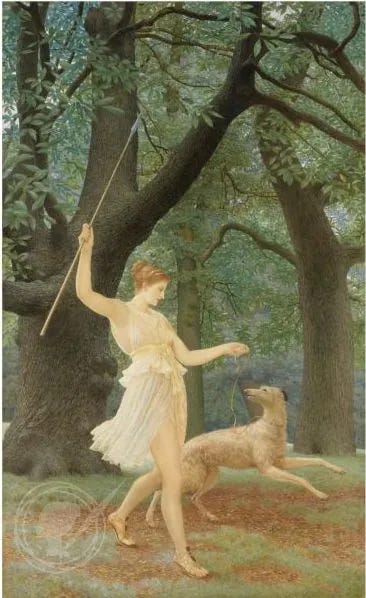On the verge of greatness, The Comedy of Errors is another early play that highlights themes that will flourish later in Shakespeare’s canon. For a comedy, it starts off with a very severe set-up scene. The law in Ephesus is mentioned in the first lines,
Again, if any Syracusian born
Come to the bay of Ephesus — he dies,
His goods confiscate to the Duke’s dispose,
Unless a thousand marks be levied
To quite the penalty and to ransom him.
Thy substance, valued at the highest rate,
Cannot amount unto a hundred marks.
Therefore by law thou art condemned to die.
Harsh laws and severe penalties, this opening is clearly written by a Catholic playwright to highlight the current laws in England, where any Catholic priest, English or otherwise, who sets foot on English soil is legally doomed to die. Priests were hunted in Elizabeth’s England, and to catch a priest was to condemn him to death.
Now, this is a comedy. So, the accused tells a story of long lost twins he is seeking. And Shakespeare uses the theme of mistaken identity and long lost twins to create some hilarious and slapstick humor for his audience, while also conveying some important religious truths core to England’s identity as a nation — ancient Catholic and newly Protestant. Identity is foremost in this play as it symbolically represents the issue of the two main churches in England, the government-sanctioned Anglican church, and the illegal, persecuted Catholic church. These churches were similar in the early days of the State church, and so, long lost twins is an apt metaphor to the separated churches.
But this is early in Shakespeare’s career, and so the symbolism he is using and exploring in these early comedies will find more depth very shortly. For example, using money as a symbol of the sacraments is experimented here but perfected in Twelfth Night. The symbolism of the ring is explored here and in The Two Gentlemen of Verona, but clarified in Merchant of Venice. These early comedies are critical to his development as an artist, storyteller, and chronicler of church history. And, as such, they function as important testimonies to his development as an artist.
Lastly, Ephesus, obviously as stand in for England, is another astute biblical choice from the Catholic playwright. In England, Queen Elizabeth was frequently referred to in poetry as Diana, the Latin goddess (or Artemis in Greek). So, Shakespeare uses this common English symbol for Elizabeth and offers important coded insights to his Catholic audiences. From a biblical point of view, Ephesus is important community with particular issues which Saint Luke chronicles in his book, The Acts of the Apostles.
A major controversy occurs in the 19th chapter while Saint Paul visits Ephesus, a jealous silversmith Demetrius who created shrines to Artemis, organizes other workers to persecute Saint Paul, relating,
“Men, you know well that our prosperity derives from this work. As you can now see and hear, not only in Ephesus but throughout most of the province of Asia this Paul has persuaded and misled a great number of people by saying that gods made by hands are not gods at all. The danger grows, not only that our business will be discredited, but also that the temple of the great goddess Artemis will be of no account, and that she whom the whole province of Asia and all the world worship will be stripped of her magnificence.”
This was eerily similar to the preaching of the gospel and sharing of the sacraments by Catholic priests. Queen Elizabeth feared they stripped her magnificence and reduced her power, wealth, and glory of her State-run church. And the tyrant created laws to encourage false worship and ban the true church from England. Like Shakespeare’s other plays, The Comedy of Errors is another key testimony to the hopes of English Catholics in not being banished from their beloved nation nor hunted by their evil Queen.
Let those with ears to hear, hear Shakespeare and learn world history.
Queen and huntress, chaste and fair,
Now the sun is laid to sleep,
Seated in thy silver chair,
State in wonted manner keep:
Hesperus entreats thy light,
Goddess, excellently bright.Earth, let not an envious shade
Dare itself to interpose;
Cynthia's shining orb was made
Heaven to clear when day did close:
Bless us then with wishèd sight,
Goddess, excellently bright.Lay thy bow of pearl apart,
And thy crystal-shining quiver;
Give unto the flying hart
Space to breathe, how short soever;
Thou that mak’st a day of night,
Goddess, excellently bright.
(1601), Queen & Huntress by Ben Johnson
Diana Or Artemis, Queen And Huntress, Chaste And Fair
by Henry Holiday, 1876




